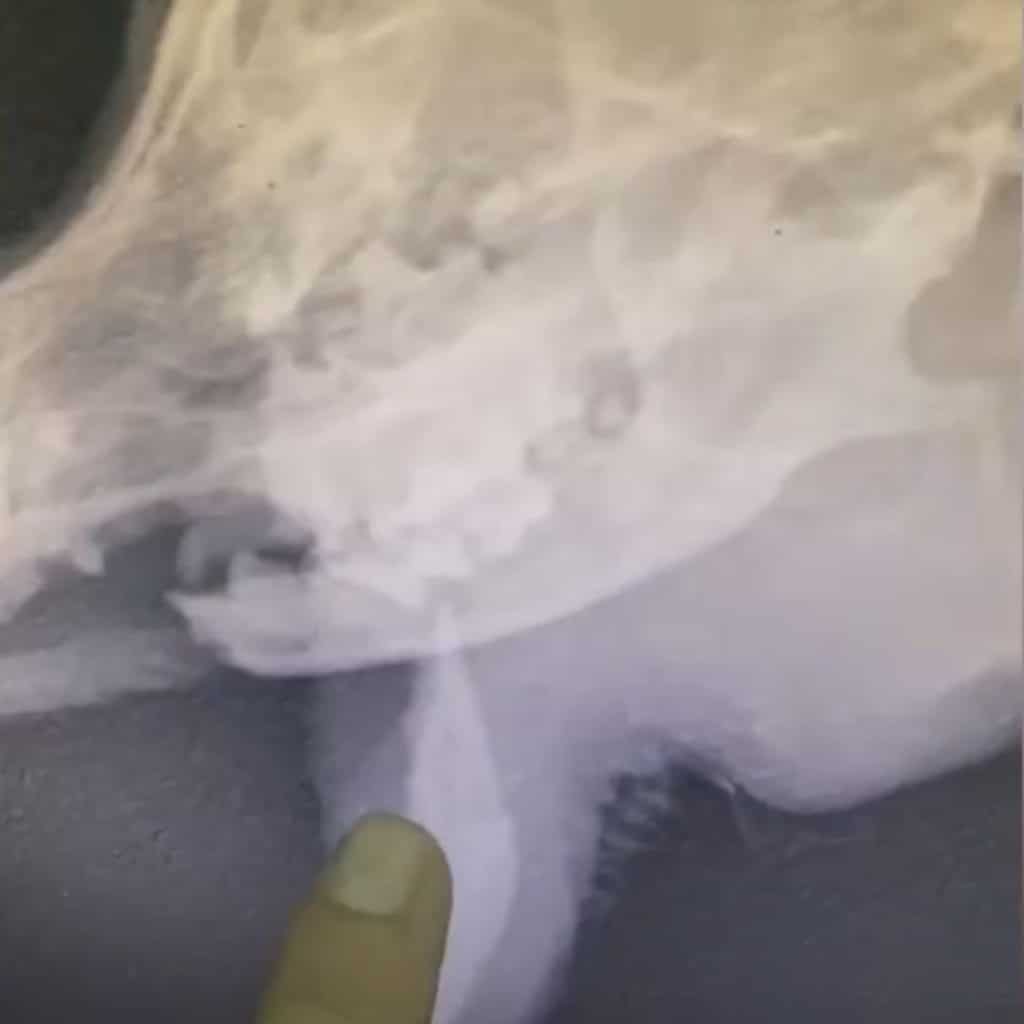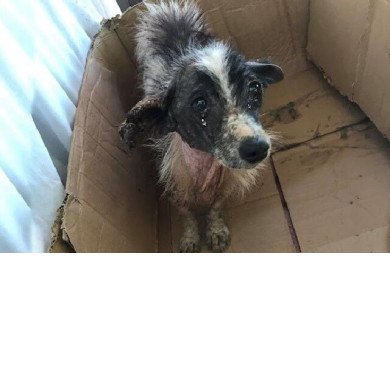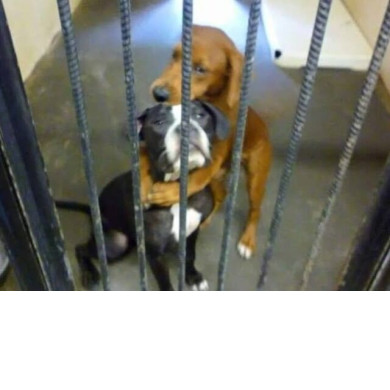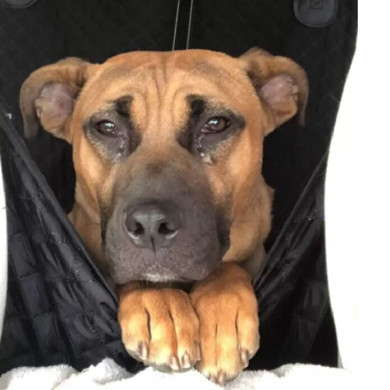He Cried Without a Sound—And We Heard Him Anyway
The dog was lying in a gutter, barely breathing, his body broken and still. His eyes, swollen and desperate, met mine—and I swear he spoke to me.
It happened in a dusty corner of a loud, busy town south of Tijuana. I’d been called by a volunteer who said she couldn’t leave the scene alone. I didn’t know what to expect. Maybe a stray limping, or a dog with a minor wound. But not this.
He didn’t bark. He didn’t whimper. He just lay there, ribs poking out, jaw slack, eyes pleading for someone to end the pain—or to carry him out of it.
The locals called him Buddy.
There’s something about real suffering that knocks the wind out of you. No filter. No explanation. Just the raw truth of pain. I cried right there on the sidewalk, like I hadn’t cried in years.
His body looked like it had been thrown away. Beaten. Forgotten. His jaw hung at an odd angle, and every breath looked like it cost him something. I reached for him slowly, and instead of flinching, he pressed his face into my hand.
He wanted help. He just couldn’t ask for it.
We had no time. He was fading, and I could feel it.
My team arranged immediate transport. We wrapped him gently in blankets, slid him into the back of the van, and drove—five hours straight to the nearest clinic that could handle something this bad. I stayed awake the whole way, whispering his name and praying under my breath that we weren’t too late.
At the clinic, the vet confirmed what we feared. His lower jaw was shattered in two places. They did full-body scans, X-rays. The breaks were clean, but devastating. There were no bones left to bridge. No simple fix.

There was no choice but to remove part of his jaw.
That night, I sat in the hallway, alone, while they operated. I watched the light under the surgery door flicker as feet moved and tools clinked. Time crawled. I thought of all the dogs who didn’t make it, all the ones who never got their miracle. And I promised Buddy that if he came back, I’d carry him as far as I needed to.
Surgery saved his life. It also meant a long road ahead. Ten days in the hospital, feeding tube installed. Months of meds, physical therapy, checkups. He couldn’t eat on his own. Couldn’t drink. Couldn’t do much but sleep and blink.
But he lived.
I brought him home in silence. He sat in the back seat, drooling from his healing mouth, head resting on a pillow. I kept glancing in the rearview mirror. Just to make sure he was still breathing.
The first time he stepped on grass again, he froze. Looked down. Tilted his head. Then pressed both paws into the earth like he was remembering what it meant to feel something soft.
I cried again.
He started to eat—not quickly, but steadily. I blended his food and fed him with a soft spoon, patient as ever. He looked me in the eye with every bite, as if saying, I’m still here. I’m trying.

We took slow walks around the yard. I rubbed his ears every morning. Talked to him like he was an old friend. He leaned into every touch like a dog who hadn’t known kindness before.
Weeks passed. His fur started to shine again. His weight returned. And one day, he wagged his tail.
That was the moment I knew he’d found the will to live.
Eventually, I brought him back to the vet for a check-up. The doctor smiled, said he’d rarely seen such determination in a recovery. I wanted to say it wasn’t just Buddy’s strength—it was something else. A kind of trust. A quiet bond built in silence.
And then, one day, we got a call.
A woman had read Buddy’s story. She said she couldn’t stop thinking about him. She lived by the coast. No other pets. A quiet home. She said she had love to give, and time to give it.
I didn’t get my hopes up.
But when she came to meet him, Buddy lit up like he knew her from another life. He walked to her, leaned against her knees, and closed his eyes. Like he’d just found the place he’d been searching for.
She laughed. Then cried. Then hugged him like a mother reunited with her child.

That weekend, we drove them both to the beach.
Buddy ran through the sand like he’d been born there. Waves lapped at his feet. He looked back at us once, as if to say thank you, and then kept running, tongue out, tail high.
That’s how we said goodbye.
Buddy went from a forgotten alley in Tijuana to a home by the sea. From broken bones and near death to morning walks and warm beds. From silence to joy.
And that’s the story of Buddy.
He reminds me that kindness doesn’t always come with noise. Sometimes, it’s quiet. Sometimes, it’s a look. A hand. A ride in the back of a van. Sometimes it’s the faith to believe healing is possible.
Every animal deserves that chance. Every broken soul deserves the time to heal.
And sometimes, when we least expect it, the ones we rescue end up rescuing us right back.
This story was inspired by a touching video you can watch here. If you enjoyed it, consider supporting the video creator.




